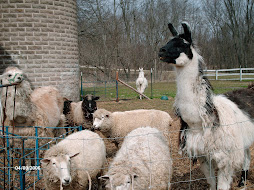Lynn Hodnett
Ms. Peifer
10IB English Hour 5
April 15, 2009
Tu Fu's "Night Thoughts Afloat" starts out with a calm, but lonely mood in the first two stanzas. This is shown when he says "By bent grasses/ in a gentle wind/ Under straight mast/ I'm alone tonight" (lines 1-4 Tu Fu). The use of the word 'gentle' and the image of grass creates a soothing and relaxed feeling. However, the mood changes in the third stanza and gives off a distinct air of being indignant. This is presented when the words "'Retired for ill health'" (line 12 Tu Fu) are in quotation marks and shows how annoyed the poet really is about his situation. In the fourth and last stanza, the mood changes again, only this time it rings with a calm loneliness edged with despair. The usage of the word 'drifting' carries a detached connotation and so that shows the author feels that he is disconnected from the rest of the world. This tone is reinforced with the image of the "single gull/ between sky and earth" (lines 15-16 Tu Fu). By using grass and a gull for the images, it creates clear, simplistic images that are easy to interpret.
Tu Fu's "Jade Flower Palace" has an overall mood of wistful remembrance and melancholy. This is shown when he says, "the pathos of/ It overcomes me" (lines 17-18 Tu Fu). It is also shown when he says, "The wind moans in/ The pines" (lines 1-2 Tu Fu). The entire poem consists of all these images that paint a picture of a once beautiful and bright palace that has fallen into disrepair and ruin. The image that echoes that especially is this: "His dancing girls are yellow dust/ Their painted cheeks have crumbled/ Away" (lines 11-13 Tu Fu). The use of the words 'dust' and 'crumbled' leave a vivid impression of age.
Friday, April 17, 2009
Journal LRJ #3
Lynn Hodnett
Ms. Peifer
10IB English Hour 5
April 14, 2009
Our society today definitely has similar values to Confucianism rather than to Taoism. One reason that proves this is true is the use of prison as a punishment for crimes. If someone does something wrong, they are usually punished for it. A Taoist society would just let the criminal receive no repercussions for what they did. This is almost unthinkable in the world today for someone to not be punished for a crime that they committed. Also, today's social environment focuses on always doing the morally right thing. Taoism doesn't stress on its followers to do the morally correct actions, but instead doesn't mention it at all. Nature doesn't have a conscious, only mysteries. Another reason is that people (mostly scientists and the such) are constantly curious and want to know why things do what they do and why events happen. Taoists just accept that something happened and would never even wonder why it occurred in the first place. It happens because that is the way of Nature and so that is the only way it should or can be.
Ms. Peifer
10IB English Hour 5
April 14, 2009
Our society today definitely has similar values to Confucianism rather than to Taoism. One reason that proves this is true is the use of prison as a punishment for crimes. If someone does something wrong, they are usually punished for it. A Taoist society would just let the criminal receive no repercussions for what they did. This is almost unthinkable in the world today for someone to not be punished for a crime that they committed. Also, today's social environment focuses on always doing the morally right thing. Taoism doesn't stress on its followers to do the morally correct actions, but instead doesn't mention it at all. Nature doesn't have a conscious, only mysteries. Another reason is that people (mostly scientists and the such) are constantly curious and want to know why things do what they do and why events happen. Taoists just accept that something happened and would never even wonder why it occurred in the first place. It happens because that is the way of Nature and so that is the only way it should or can be.
Tao Te Ching LRJ #2
Lynn Hodnett
Ms. Peifer
10IB English Hour 5
April 13, 2009
The first excerpt of the Tao Te Ching talks about Nature herself and how humans should listen to her. It states, "Hence always rid yourself of desires in order to observe its secrets" (line 7 Tzu). The Tao Te Ching also tells the reader that humans, no matter how hard they try, will never ever discover all of the secrets that Nature has: "Mystery upon mystery- The gateway of the manifold secrets" (lines 12-13 Tzu).
The next excerpt says that if one does not value any material goods, then it will never be missed by the owner or stolen by another person: "not to value goods which are hard to come by will keep them from theft" (lines 11-12 Tzu). It also encourages people to not pursue an education for oneself and take no action whatsoever. By doing this, people will stay out of Nature's way and circumstances will fall how they are supposed to.
The third excerpt of the Tao Te Ching speaks about how humans should accept the fact that objects in life don't stay the same, but change and fade away: "the sharpness cannot be presered forever" (line 30 Tzu). This section also tell the reader to stop trying earn wealth because it will only cause stress, distaster, and unhappiness: "To be overbearing when one has wealth and position Is to bring calamity upon oneself" (lines 33-34 Tzu).
The last excerpt of the Tao Te Ching teaches the reader that to be calm and meek will assist with problems that they encounter on the hard road of life: "The most submissive thing in the world can ride roughshod over the hardest in the world" (lines 1-2 Tzu). This section also talks about how that to do nothing is constantly the correct action to take and that to gain true knowledge is to recieve it through Nature, not through the words of another person: "The teaching that uses no words, the benefit of resorting to no action, these are beyond the understanding of all but a very few in the world" (lines 6-8 Tzu).
Confucian teachings are distince from Taoist teachings in the way that they have different opinions about what kind of order the world present to humans. Confucianism believes that the world order is choatic and can be improved by having individuals better themselves so they can better the world around them. This is shown in a section of The Analects: "Govern them by moral force, keep order among them by ritual, and they will keep their self-respect and come to you of their own accord" (stanza 10 Confucious). Taoists, on the other hand, think that the world is just how it should be and to try to mess with the way of Nature is folly. This is seen in an excerpt from the Tao Te Ching: "That is why I know the benefit of resorting to no action. The teaching that uses no words, the benefit of resorting to no action, these are beyond the understanding of all but a very few in the world" (lines 5-8 Tzu).
Ms. Peifer
10IB English Hour 5
April 13, 2009
The first excerpt of the Tao Te Ching talks about Nature herself and how humans should listen to her. It states, "Hence always rid yourself of desires in order to observe its secrets" (line 7 Tzu). The Tao Te Ching also tells the reader that humans, no matter how hard they try, will never ever discover all of the secrets that Nature has: "Mystery upon mystery- The gateway of the manifold secrets" (lines 12-13 Tzu).
The next excerpt says that if one does not value any material goods, then it will never be missed by the owner or stolen by another person: "not to value goods which are hard to come by will keep them from theft" (lines 11-12 Tzu). It also encourages people to not pursue an education for oneself and take no action whatsoever. By doing this, people will stay out of Nature's way and circumstances will fall how they are supposed to.
The third excerpt of the Tao Te Ching speaks about how humans should accept the fact that objects in life don't stay the same, but change and fade away: "the sharpness cannot be presered forever" (line 30 Tzu). This section also tell the reader to stop trying earn wealth because it will only cause stress, distaster, and unhappiness: "To be overbearing when one has wealth and position Is to bring calamity upon oneself" (lines 33-34 Tzu).
The last excerpt of the Tao Te Ching teaches the reader that to be calm and meek will assist with problems that they encounter on the hard road of life: "The most submissive thing in the world can ride roughshod over the hardest in the world" (lines 1-2 Tzu). This section also talks about how that to do nothing is constantly the correct action to take and that to gain true knowledge is to recieve it through Nature, not through the words of another person: "The teaching that uses no words, the benefit of resorting to no action, these are beyond the understanding of all but a very few in the world" (lines 6-8 Tzu).
Confucian teachings are distince from Taoist teachings in the way that they have different opinions about what kind of order the world present to humans. Confucianism believes that the world order is choatic and can be improved by having individuals better themselves so they can better the world around them. This is shown in a section of The Analects: "Govern them by moral force, keep order among them by ritual, and they will keep their self-respect and come to you of their own accord" (stanza 10 Confucious). Taoists, on the other hand, think that the world is just how it should be and to try to mess with the way of Nature is folly. This is seen in an excerpt from the Tao Te Ching: "That is why I know the benefit of resorting to no action. The teaching that uses no words, the benefit of resorting to no action, these are beyond the understanding of all but a very few in the world" (lines 5-8 Tzu).
Subscribe to:
Posts (Atom)


